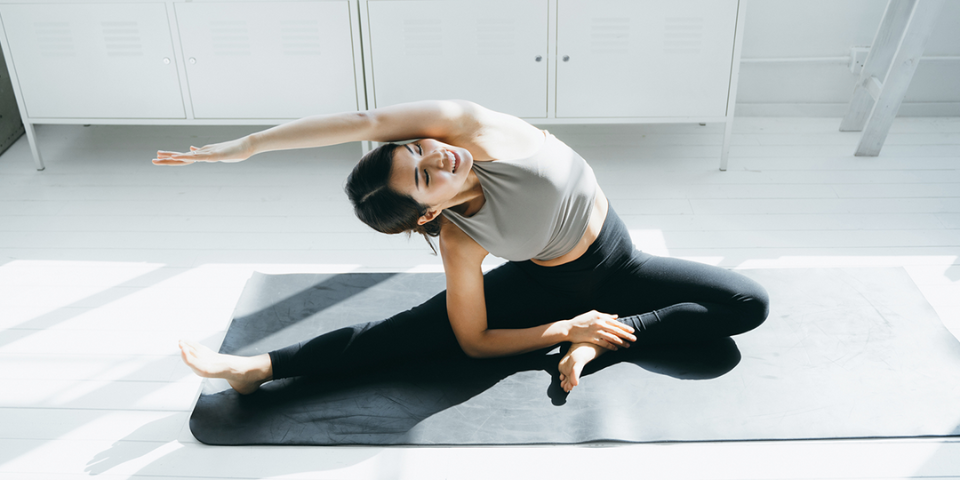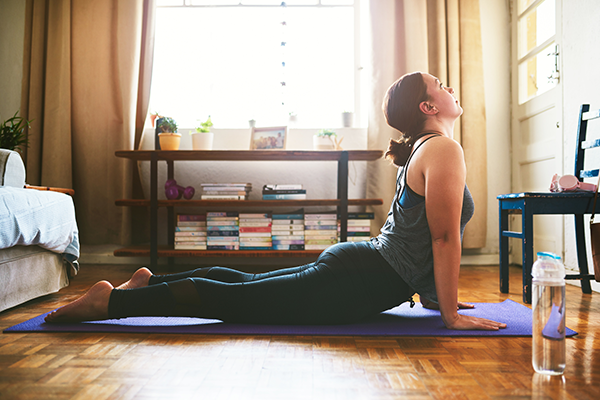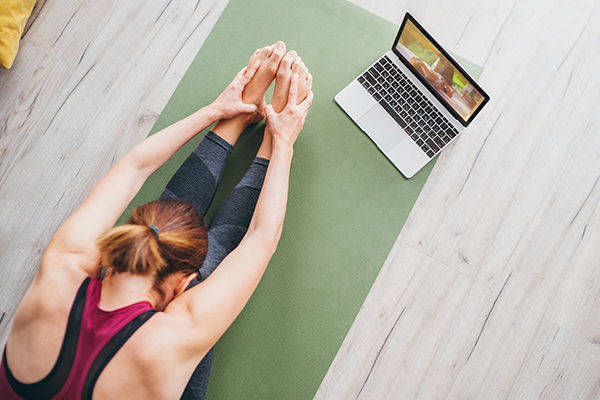If you generally feel lighter after a good stretching session, you might wonder, “Did I just lose weight? Does stretching burn calories?!”
Of all the other unconventional ways to shave off a few calories, stretching seems to be the most useful.
Read on to find out how stretching can benefit you beyond burning calories (since that’s not really the point of stretching), plus how to build it into your day.
How Many Calories Does Stretching Burn?
The goal of stretching should not be to burn calories, says Dr. Nicole Lombardo, PT, DPT, CSCS. That said, it may burn some depending on the type of flexibility work you’re doing and for how long.
There are the two main types of stretching:
- Static: This is the type of stretching you likely learned in gym class, where you elongate a muscle and hold that position for a couple seconds to release tension. Think: touching your toes or a side bend.
- Dynamic: These kind of stretches are active, moving your limbs and joints through full ranges of motion to prime your muscles for action. Think: walking lunges or trunk rotations.
“If you are doing dynamic stretches or a yoga flow — which can include various stretches — you may burn some calories when compared to not moving at all,” Lombardo says.
The American Council on Exercise estimates that a 150-pound person could burn around 85 calories stretching or practicing hatha yoga for 30 minutes.
Why Should I Add Stretching to My Routine?
Adding some quality stretching to your day not only helps your body prepare for and recover from exercise but also helps your body function outside of the gym, especially as you age.
“Stretching is important to do in order to maintain a level of flexibility and allow us to remain functional,” Lombardo says. “For example, many older adults lose the ability to touch their toes, which makes activities such as putting on shoes and socks difficult.”
Can Stretching Change the Shape of My Body?
Nope, not really. “It may change how your body moves, but stretching really can’t change your muscle or fat composition,” Lombardo says.
It’s a good way to recover after workouts that do those things, however.
5 Tips to Start Stretching
- Take a quick stretch break every hour or two at work.
- Stretch while watching TV.
- Figure out a time that’s usually open during your day, and then block it off on your calendar for stretching.
- Ease into your new stretching routine. It might take a while for you to build mobility and flexibility, so be patient and allow your body time to adapt.
- Try our XB Stretch or Yoga52 programs.
The moral of the stretching story: Stretching itself isn’t some magical calorie-torching weight-loss tool, but it’s an important way to help you prep for and recover from workouts and move through your day with more ease.
Best Stretching Exercises
If you’re looking for relief in some of the most commonly tense areas of your body, try these stretches:


